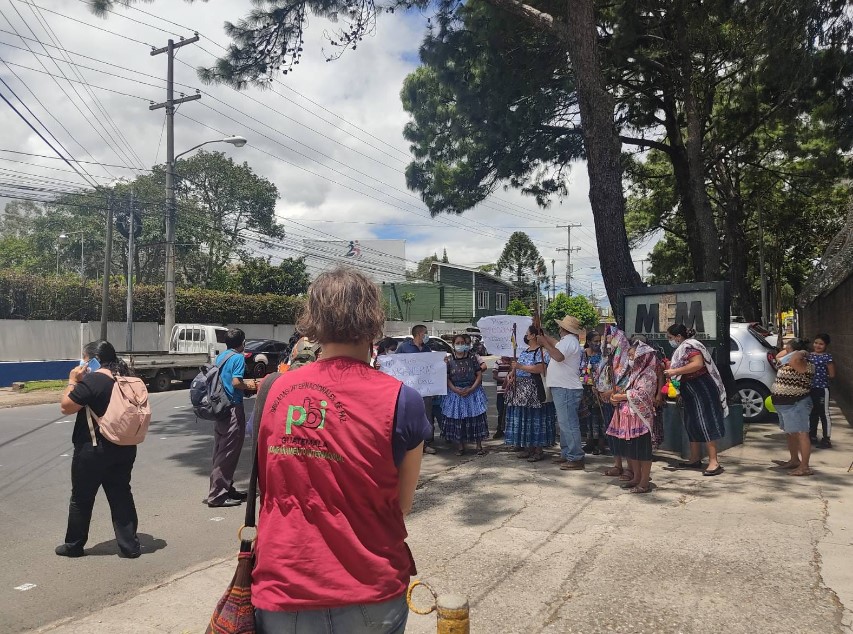
On July 9, PBI-Guatemala posted: “PBI accompanies the Multisectoral Chinautla resistance at a press conference at the Ministry of Energy and Mines. The Resistance opposes the renewal of sand licenses.”

The Chinautla Multisector Urban Platform advocates for the human right to water to be respected and raises concerns about the nearby resource (sand) extraction that endangers homes and a massive garbage dump that pollutes water.
PBI-Guatemala has previously explained, “Since 1989, the Chinautla Multisector Urban Platform has defended its right to be consulted on the projects of several sand companies operating in its territory.”
It adds, “The region has been a sand area for decades, but it was in 1995 when large-scale sand extraction began with heavy machinery” with major consequences.
In May 2018, the Guatemalan newspaper Prensa Libre reported that the extraction of sand from the channel of the Chinautla River and the confluence of the Tzaljá and Las Vacas tributaries, in an area where there are already geological faults, accelerates the cracking of walls and the sinking of some homes in the community.
Chinautla Multisector Urban Platform member Martín Catalán has stated that the group had called for the extraction of the sand to be moderated to stop the erosion of the soil, but that their proposals were not taken into account by local authorities.
Prensa Libre has also noted that the residents of Santa Cruz Chinautla are additionally impacted because during the rainy season the floods from three rivers drag trash from (the dump in zone 3 in) Guatemala City into their community.
The Urban Platform proposal is to “Create a water law and government and municipal agreements that guarantee community and indigenous peoples’ participation to guarantee equal rights to water” within a two-year period.
The PBI-Guatemala Project has accompanied the Chinautla Multisector Urban Platform since December 2018.
